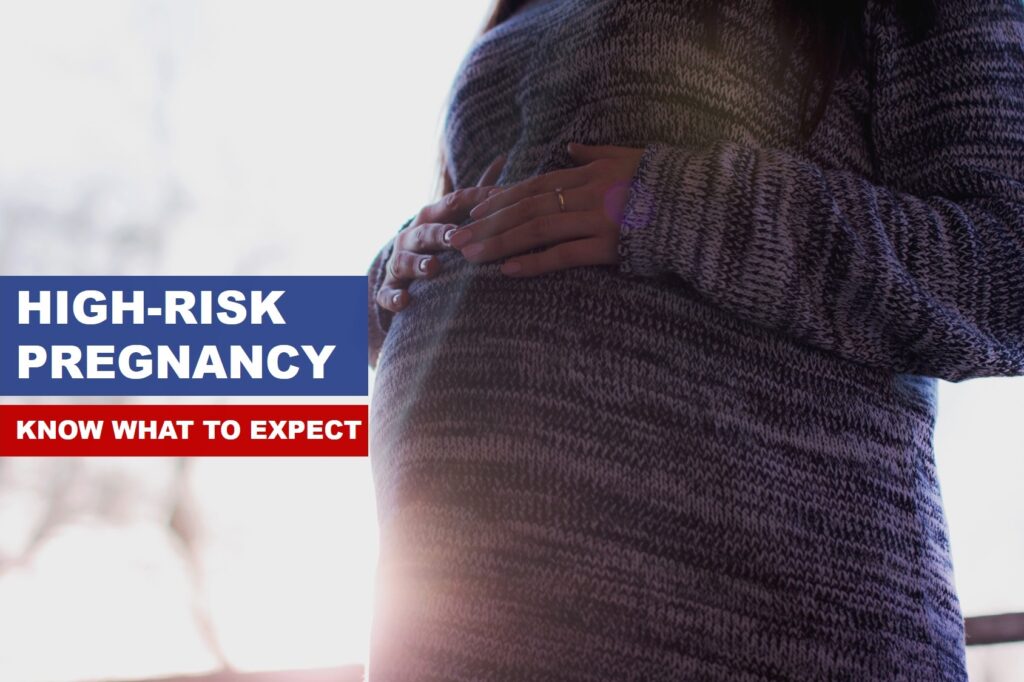High Risk Pregnancy – Know What to Expect
Overview – High Risk Pregnancy
A pregnancy is considered high-risk when there are potential complications that could affect the mother, the baby, or both. High-risk pregnancies require management by a critical care specialist to help ensure the best outcome for the mother and baby.
Before we get to know various complications in pregnancy, let us understand the risk factors for a high-risk pregnancy.
What are the risk factors for a high-risk pregnancy?
Maternal Age
The age of mother-to-be is one of the most common risk factors for a high-risk pregnancy. A women who is under 17 or over 35, are at greater risk of pregnancy complications than those between their late teens and early 30s. Pregnancy after age 40 increases the risk of miscarriage and genetic defects.
Sometimes a high-risk pregnancy is the result of a medical condition present before pregnancy. Conditions that can pose risks to the mother or baby include:
- High blood pressure
- Lung, heart and kidney problems
- Diabetes
- Depression
- Obesity
- Autoimmune disease
- Sexually transmitted diseases (STDs)
- Human immunodeficiency virus (HIV)
If you have a medical condition, it’s important to consult your doctor before you decide to become pregnant.
Complications during pregnancy
Ovarian Hyperstimulation Syndrome (OHSS)
OHSS occurs when a woman’s ovaries swell and leak fluid into the body. It is an exaggerated response to excess hormones. It usually occurs in women taking injectable hormone medications to stimulate the development of eggs in the ovaries causing the ovaries to swell and become painful.
Ectopic Pregnancy
An ectopic pregnancy occurs when a fertilized egg implants and grows outside the main cavity of the uterus. An untreated ectopic pregnancy can be a medical emergency. The fertilized egg can’t survive outside the uterus. If left to grow, it may damage nearby organs and cause life-threatening loss of blood.
Spontaneous Abortion (Miscarriage)
Miscarriage is the most common type of pregnancy loss and often occurs because the foetus isn’t developing normally. Spontaneous abortion refers to pregnancy loss at less than 20 weeks’ gestation in the absence of elective medical or surgical measures to terminate the pregnancy.
Pregnancy-Induced Hypertension (PIH)
It is a form of high blood pressure in pregnancy. It occurs in about 7 to 10 percent of all pregnancies. Critical care specialists also refer to the condition as gestational hypertension.
Pregnancy-Induced Diabetes
Also known as gestational diabetes, is a condition in which your blood sugar levels become high during pregnancy. Gestational diabetes goes away after you give birth. But it can affect your baby’s health, and it raises your risk of getting type 2 diabetes later in life.
Eclampsia
Eclampsia is a severe complication and is a rare but serious condition, where high blood pressure results in seizures during pregnancy. Eclampsia can follow a condition of high blood pressure and excess protein in the urine during pregnancy (preeclampsia). However, getting the proper care and treatment for preeclampsia may prevent progression of the disease into a more severe form such as eclampsia.
Postpartum Hemorrhage
Postpartum hemorrhage (also called PPH) is when a woman has heavy bleeding after giving birth. It is more likely with a cesarean birth. It most often happens after the placenta is delivered, but it can also happen later. Symptoms include vaginal bleeding that doesn’t slow or stop. This can lead to a drop in blood pressure.
Know more about pregnancy & critical care at Phoenix Hospital
Dr. Yogesh Vaghela, Consultant Critical Care Specialist at Phoenix Hospital, Ahmedabad; explains different pregnancy complications and how critical care helps for a healthy pregnancy.
High Risk Pregnancy: The Bottom Line
While these high-risk pregnancy conditions may differ from one to the another, but what you can do is getting a regular check-up during your pregnancy. Regular prenatal (even preconception) care is crucial. Women are encouraged to talk about what they can do to reduce their pregnancy risks.
Source:
Banner Image: Unsplash.com [Free to use under the Unsplash License]



